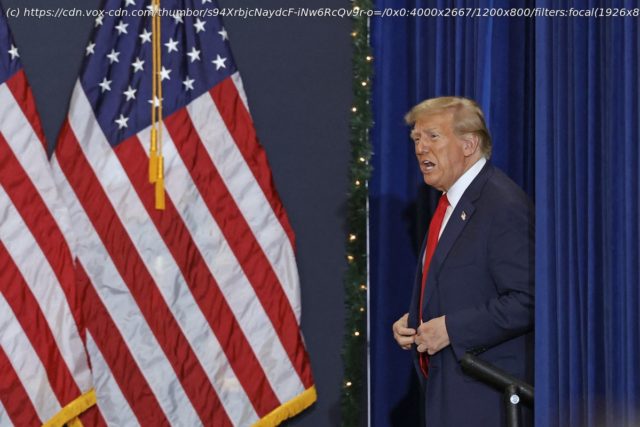The Colorado Supreme Court’s decision is unlikely to be upheld by the US Supreme Court, but this issue is not going away.
The Supreme Court is now almost certain to hear a case about whether former President Donald Trump is eligible to run for president again, and no one really knows for sure whether he is or not.
On Tuesday evening, Colorado’s highest court handed down a stunning decision holding that former President Donald Trump “is disqualified from holding the office of President” under Section Three of the 14th Amendment to the United States Constitution. Because of this, the court determined that Trump’s name may not appear on the 2024 Republican primary ballot.
Broadly speaking, the 14th Amendment prohibits former high-ranking government officials who “have engaged in insurrection or rebellion” against the Constitution of the United States from serving in high office again. The court determined that Trump’s incitement of the January 6, 2021, attack on the Capitol meets the Constitution’s definition of an “insurrection.”
The case is called Anderson v. Griswold, and it would be quite surprising if the Supreme Court didn’t take up this case.
That said, there are serious procedural flaws with the process Colorado’s courts used to determine that Trump is ineligible. This does not mean that Trump should ultimately be allowed to run for president in 2024, but it does suggest that the US Supreme Court should reverse the Colorado justices’ Anderson opinion and defer resolution of whether or not Trump is eligible for a future case.
And there is also a strong practical argument against allowing Trump to be removed from the ballot, at least before he is convicted of a crime arising out of his violation of his oath to “protect and defend the Constitution of the United States.” As my colleague Zack Beauchamp has warned, “There is little reason to believe courts enjoy enough legitimacy among Republicans (or Democrats, for that matter) to be in a position to kick a major-party candidate off the ballot.”
In short, the Constitution says that public officials who participate in an insurrection may not seek high office again. But it neither lays out what process should be used to determine who engaged in an insurrection, nor does it define key terms like the word “insurrection.” And that creates a nightmarish challenge for courts considering whether Trump may run for president again.The Colorado Supreme Court’s decision is likely to be reversed by the US Supreme Court — and it should be reversed on narrow procedural grounds
Let’s be clear about one thing up front: It is unlikely that the Colorado justices’ decision to kick Trump off the ballot will survive an appeal — although the question of whether Trump is eligible for president could very well arise again if a prosecution charging Trump with attempting to steal the 2020 election is successful.
The Colorado Supreme Court is ideologically very unlike the nation’s highest Court. Every member of the state’s Supreme Court was appointed by a Democratic governor, while the US Supreme Court has a two-thirds Republican supermajority.
This does not mean that the Colorado justices are all knee-jerk Democrats. To the contrary, Colorado’s judicial appointments process is designed to diminish the role of partisanship in judicial selection — while governors make the final choice of who may sit on the state Supreme Court, they must choose a new justice from a short list of names provided to them by a nonpartisan commission. That means that Democratic governors typically cannot pick their own loyalists, but they can also veto candidates who are too sympathetic to the Republican Party.
In the federal system, by contrast, potential justices are carefully vetted by the White House to ensure that they share the same broad approach to legal interpretation preferred by the president’s party.
Home
United States
USA — mix Everything you need to know about the court order removing Trump from...






